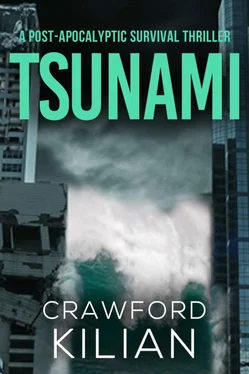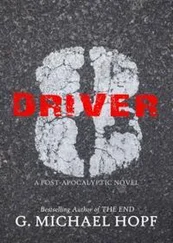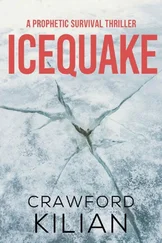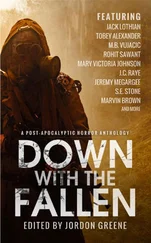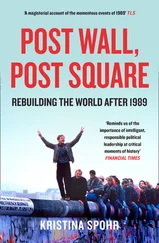“A lot of people are converting, aren’t they?” Don asked. “We’ve been seeing more trucks and cars on the streets lately.”
“Yeah, I guess so. Trouble is finding the equipment and then finding the propane or gas. But a lotta guys are using their heads to beat the shortages.”
That was true enough, Don reflected. Berkeley was even beginning to look different as people began to experiment with different kinds of energy resources. Some had made solar panels and were heating their homes with them. But that was only a piecemeal solution, he knew. Perhaps one household in twenty had self-generated hot water and space heating; one in fifty had its own electric light, usually from a bicycle-powered generator. Berkeley as a whole was down to ninety minutes of electricity, every other day.
The streets at night were busy, almost crowded in some places. Hundreds of bicycles were out, and a few trucks. Here and there a building glowed with electric lights: hospitals, a few local-run clinics, the food-distribution centres. Otherwise candles burned everywhere. People had begun to adjust to staying up all night and sleeping most of the day.
Down near the wreckage zone, the driver turned into a side street along a park, and found his way blocked by a truck. “What now?” he growled.
A backhoe was operating in the park, its engine roaring as it dug a long, deep trench parallel to the street.
“What a waste of fuel,” Don said.
“No it’s not,” said Kirstie. “Smell. There’s quite a pong in the air.”
Don nodded, wrinkling his nose. A work crew of ten or fifteen men and women, wearing the orange armband of the Berkeley local, stood by the truck; several held furled stretchers. Other people, adults and children, were crowded along the sidewalk. Some were crying.
“It’s a burial,” Kirstie whispered. “They’ve got to work fast.”
Someone opened the back of the truck. In the headlights of the Pontiac, the Kennards could see bodies stacked three or four deep. Members of the work crew, wearing white surgical masks and gloves, climbed up and began hauling out the corpses, swinging them onto waiting stretchers whose bearers took them to the trench and dumped them in.
One of the workers came up to the car and said to the driver: “I think you better back up and go another way. We’re going to be here awhile.”
“I can see that,” the driver answered. “Man, that’s real sad, ain’t it? Really sad. More typhoid?”
“Yeah. The doctors say it’s getting worse.”
“Uh-huh. Listen, on our block you can take your pick, you know? Typhoid, meningitis, hepatitis, stomach bugs they ain’t got names for yet.”
“I believe it. Well, take it easy.” The worker turned and plodded back to the truck. The stink of putrefaction thickened; swearing, the driver threw the car into reverse.
“It never quits, does it?” Don said quietly. “No energy, no clean water. No clean water, people get sick. No energy, no transportation and no medical technology, so people die.”
* * *
The western edge of the wreckage zone, facing the bay, was beginning to resemble a shoreline. A crude harbour was in operation. Sailboats and a very few power craft crossed the bay to San Francisco and Marin, carrying passengers and small quantities of trade goods; payment was in goods or in local-council scrip. The Kennards had anchored Naiad here after their return from Monterey Bay in March; now, in early April, the little sloop was equipped for the much longer run to Vancouver.
Their crew waited on the dock: Bill Murphy and Chief, just off the ferry from San Francisco, and Einar Bjarnason. Sam Steinberg was there too; he was on the Berkeley local executive now, and had come down to see them off.
“You know,” Sam remarked as they all walked down the dock, “when Don first suggested this salvage idea, the executive thought he was nuts. Now they’re all terrified that maybe they were right the first time, and we won’t get the oil after all.”
Don laughed. “They’ll get it, all right.” He looked up at the night sky: stars glittered among the scattered clouds. “We’ve got good weather. I hope it stays that way. We won’t have any weather reports between here and Vancouver.”
“Don’t remind me,” groaned Bill Murphy. “All the way up the coast in a dinky little sloop, without a working compass or radio. The executive was right — you are nuts.”
Naiad was moored at the end of the dock; they all went aboard, including Sam, who opened a bottle of champagne. They sat on deck in the cool April night, drinking and talking quietly. Sam said good-byee and left, and then it was time to take the tide.
* * *
Far out from the coast, the sea was strewn with floating debris — logs, trees, shattered lumber, sometimes the recognizable fragments of a house or dock. It was exhausting to beat against the west and northwest winds while steering around half-submerged logs. But Don saw that his crew worked well together; they had been chosen partly to give representation to the locals supporting the trip, but all had experience in small craft and were enjoying the challenge of pitting Naiad against the sea.
It seemed strange to Don to sail within sight of the coast yet see so few signs of life. Twice they saw other sails and, once, a derelict Japanese freighter loomed up out of early-morning rain and drifted slowly past. The coasts of northern California, Oregon and Washington were wrapped either in clouds or in smoke; at night, the flames of vast forest fires glowed all along the eastern horizon, and sometimes half the sky pulsed red and pink above the fires.
“I wonder if there’s a stick of wood still standing between Alaska and San Francisco,” Don said. “I’ve seen bad fires, but nothing like these. They must have been burning for weeks.”
“It is sad,” Einar said. “In my country we have no forests since a thousand years. When I came to Berkeley, the trees were like magic to me. Often I go walking in the hills just to see the trees.”
“You and my grandfather will get along,” Don said with a wry smile. Then: “Einar — look. To starboard.”
With a splash and a gasp, a humpbacked whale broke the surface. Then another one, and more; in less than a minute, six whales had appeared around the sloop.
“My God,” said Don, “look at their backs.”
A whale rose right alongside Naiad ; its enormous back was a bleeding, oozing mass of sores and rotting ttesh. From its blowhole came a strangled squeal. Then it dived, showing flukes the size of Naiad’s sails. Another surfaced. It circled the boat, followed by the others. All showed gaping lesions in their backs and in the upper sides of their fins and flukes. Some seemed hardly able to breathe: their blowholes were almost sealed shut by swollen flesh.
“Ultraviolet,” said Einar without expression. “The water does not protect them much.”
“They’re asking for help,” Don said. “I believe they’re asking us to help them, and we can’t. We can’t do a thing for them.”
For fifteen minutes the pod circled the boat. The whales’ cries were thin and shrill. At last the leader turned away, and the others followed. Don and Einar said nothing for a long time.
* * *
A week after leaving San Francisco, Naiad was sailing through Juan de Fuca Strait along the coast of Washington. Don could see the scars of the tsunamis: hillsides scoured down to bedrock, beaches buried under immense piles of shattered trees. But the waves had not propagated far into Juan de Fuca Strait; the channel looked to Don much as it always had, except for the lack of ships in what was normally a busy waterway. The peaks of the Olympic Range were dazzlingly white; so were those on Vancouver Island, on the north side of the strait. Along the horizon hung a brownish pall of smoke and haze, thick enough to sting the eyes and catch in the throat.
Читать дальше
